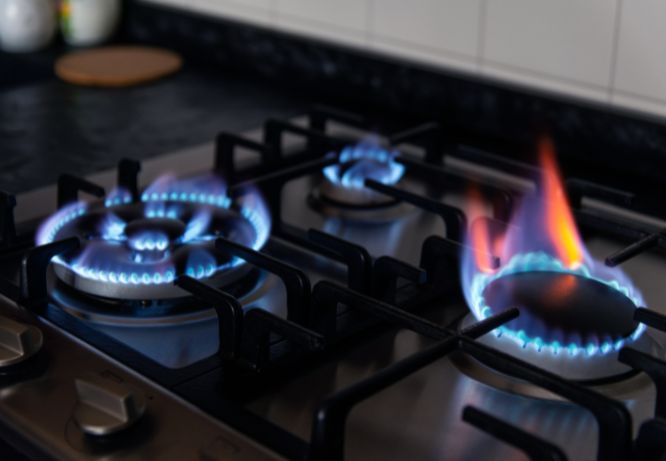The issue of gas stoves and health hazards has, within the last few years, received much criticism on the part of both homeowners and medical professionals. While generally having the reputation of being highly effective and efficient to cook with, one essential question now remains: can gas stoves cause cancer? It discusses the possible hazards associated with the use of gas stoves and some of the science that surrounds the issue, in addition to consulting with the relevant medical professional, such as a cancer specialist in Ahmedabad.
Science of the Gas Stove
Most gas stoves burn either natural gas or propane as their fuel. When these gases are burned to produce heat for cooking, various byproducts are formed in the combustion process. This includes NO₂, CO, and particulate matter. Due to incomplete combustion, these contaminants can be released into the air in your home.
Emissions and Indoor Air Quality
These can have very harmful effects on indoor air quality. Exposure to high levels of nitrogen dioxide, therefore, results in respiratory problems, likely in children and those people who might have predisposing conditions of asthma. According to the American Lung Association, gas stoves produce levels of NO₂ that sometimes exceed those recommended by the Environmental Protection Agency for outdoor air quality.
Possible Cancer Risks
While studies related to gas stoves and their linkage to cancer are still underway, a few of them hint that long-term exposure to gas stove emissions increases the risk for certain cancers. What follows is a sneak peek at some of the key considerations:
Carcinogenic Compounds: Combustion of natural gas produces a known carcinogen, benzene, although in relatively very small quantities. Long exposure to it can cause diseases such as leukemia.
Indoor Air Quality and Respiratory Health: Indoor air quality, if poor, may contribute to chronic respiratory disease development. These diseases themselves may not directly be the causes of cancer but do indirectly act in increasing the cases of cancer. For instance, persons suffering from chronic respiratory diseases have a high chance of developing other forms of cancer due to their compromised immunity.
Studies and Findings: Several studies have indicated that exposure to gas stoves in poorly ventilated areas can increase the chances of the development of lung cancer in an individual in comparison to exposure involving electric stoves. This is primarily because it is associated with a number of factors, thereby making the establishment of the direct cause quite hard.
Ventilation: A Key Factor
The most important mitigation of these risks involves appropriate ventilation around gas stoves. Utilizing exhaust fans or simply allowing good airflow while cooking will go a long way in reducing harmful pollutants present in your kitchen. The practical ways of improving ventilation include
Utilize Fans: Switch the kitchen exhaust fan on while cooking to help clear the air of smoke and other pollutants.
Opening Windows: Open the window, if possible, to ensure the result of cross-ventilation; it will ease the penetration of fresh air in the kitchen and scatter some of the noxious gases.
Regular Maintenance: Ensure regular maintenance of your gas stove to prevent incomplete combustion that leads to much higher emissions of these harmful byproducts.
Seek Professional Advice
In light of the possible risks associated with the use of gas stoves, you have to take your health and safety issues up with medical professionals. A cancer specialist based in Ahmedabad, for example, Dr. Vikesh Shah, would be well-placed to give advice and suggestions that are specifically applicable to the case at hand.
Importance of Regular Check-Ups
Regular check-ups with health professionals are highly important in the prevention and early detection of a wide variety of conditions, including cancers. A specialist will consider all of the risk factors associated with your general health and using gas stoves and advise on how life can be changed to reduce some of those risks.
Lifestyle Changes That Can Help You Stay Healthier
If you feel that with a gas stove, you are in some sort of danger, here are a few things you need to change in your lifestyle.
Switch to Electric: If at all possible, make the switch to an electric stove or induction cooktop. Both these options are cleaner and do not make use of the type of emissions that the gas stoves do, making them healthy for you.
Improve Indoor Air Quality: Installing air cleaners with HEPA filters can capture some ambient pollutants in the home.
Reduce tobacco smoke: If you or a family member smokes, quitting will dramatically improve the quality of the air inside and lower the risk of cancer.
Eat Healthy: A diet high in fruits and vegetables will help keep your immune system healthy and reduce the risk of developing certain cancers.
Stay tuned for information regarding indoor air quality updates and current studies on cooking. It’s your right to know, and sometimes knowing is power where your health is concerned.
Conclusion
Whether gas stoves cause cancer is an issue that needs further research. There could be some risks associated with the emission from gas stoves, and proper ventilation, coupled with certain changes in ways of life, might just be of immense help in negating these risks. This is best discussed with a qualified health professional for personal advice and health checks, such as a cancer specialist in Ahmedabad like Dr. Vikesh Shah.
If you have been on a gas stove for quite a while and are concerned for your health, seek professional advice without further delay. Being proactive about understanding and managing your health could make all the difference, not just to overall health but also to the tranquility of mind that comes with it.
Remember, your health is invaluable. Making informed decisions today can pave the way for a healthier future.

